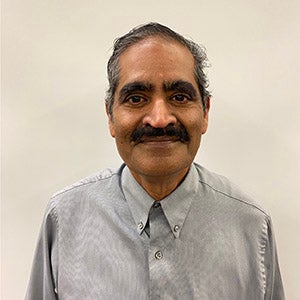Jothiram Vivekanandan named honorary fellow of the Indian Meteorological Society
Fewer than 25 individuals worldwide have received this distinction
Jun 30, 2025 - by Staff
Jun 30, 2025 - by Staff

Jothiram “Vivek” Vivekanandan, senior scientist at the U.S. National Science Foundation National Center for Atmospheric Research (NSF NCAR), has been named an honorary fellow of the Indian Meteorological Society (IMS), one of the highest honors in Indian atmospheric science. Fewer than 25 individuals worldwide have received this distinction, which recognizes exceptional contributions to meteorology and related sciences that have a significant impact on India and beyond.
An expert in polarimetric, dual-wavelength, and phased array radar technologies, Vivekanandan has collaborated extensively with Indian scientists to advance understanding of monsoon precipitation. His mentorship and technical guidance have supported the interpretation of polarimetric radar measurements, which can differentiate among precipitation particles of different shapes, compositions, and orientations and are increasingly critical for studying the Indian summer monsoon.
This recognition comes at a time of significant progress in India’s approach to monsoon prediction. The India Meteorological Department has made major advances in modeling, observations, and high-performance computing. Accurate forecasts of monsoon timing and intensity are vital for ensuring food and water security for more than 2 billion people across South and Southeast Asia.
Vivekanandans’s contributions have been supported by the collaborative environment and technical resources at NSF NCAR and reflect the strong international ties that drive scientific progress. His work builds on a longstanding institutional relationship between the Indian Ministry of Earth Sciences and the University Corporation for Atmospheric Research, a nonprofit university consortium that manages NSF NCAR.
“I’m especially grateful for the research opportunities and collaborative environment at NSF NCAR,” Vivekanandan said. “The polarimetric radar techniques we refined here became central to understanding monsoon cloud clusters, work that IMS recognized as both scientifically and societally impactful.”